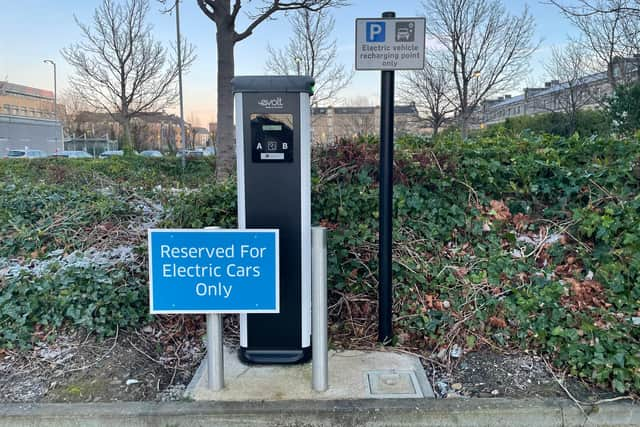Recycling: Battery waste mountain driven by switch to electric vehicles could power Scotland green jobs surge
But can a greater use of batteries also power a surge in green jobs?
A new report commissioned by Zero Waste Scotland, in partnership with Transport Scotland and Scottish Enterprise, concludes that it can.
Advertisement
Hide AdAdvertisement
Hide AdAs more people start driving electric vehicles and rely on digital technology in a bid to tackle climate change, use of batteries is predicted to soar threefold in Scotland over the next couple of decades.


Analysis suggests the move could see an extra 60,000 tonnes of used batteries being binned each year by 2045, when Scotland is due to have achieved net zero greenhouse gas emissions.
But in that rubbish lies “significant new job opportunities” and major economic benefits for Scotland, according to the waste agency.
Most used batteries – and the valuable and potentially hazardous materials they contain – are currently exported for recycling or sent to landfill.
The report suggests scaled-up and improved battery recycling operations would create employment, allow precious materials to be reused and help the country achieve its climate targets.
Key recommendations include updating the existing extended producer responsibility scheme for batteries, giving manufacturers a greater duty to minimise waste and associated emissions, introducing battery recycling targets and carbon footprint declarations to discourage waste, and designing new batteries so they are easy to disassemble for re-use.
The Faraday Institution has estimated growing demand for batteries from the switch to electric vehicles could boost jobs in the automotive industry and battery supply chain across the UK from 186,000 to 246,000 by 2040 – an increase of 60,000 roles.
“This report sees us map out a potential resource and revenue stream for Scotland’s future,” said Iain Gulland, chief executive of Zero Waste Scotland.
Advertisement
Hide AdAdvertisement
Hide Ad“It is one of a number of resource mapping reports Zero Waste Scotland plans to produce to ensure we are armed with the knowledge we need to capitalise on the economic opportunities of sustainable resource management in a net zero future.
“In forecasting the future demand for batteries, we can identify a golden opportunity to develop a circular approach to the way we manage those batteries when they become waste.
“Embracing these opportunities is fundamental to our achievement of net zero for Scotland.”
By assessing the expected rising demand for batteries across key sectors, including transport, the agency found around 40 per cent of future battery waste could come from electric vehicles, while high levels of consumption for technological goods like smart phones over the past decade will also be a source.
Andy McDonald, head of low-carbon transition at Scottish Enterprise, said: “There is huge opportunity in the fast-growing demand for new, innovative battery technology supporting our energy use and increased use of electric transport.
“As these reports highlight, there is also significant additional resource, revenue and jobs potential from battery remanufacturing and we will utilise the findings and link to wider work around energy transition that will be key to reaching Scotland’s net zero targets.”
A message from the Editor:
Thank you for reading this article. We’re more reliant on your support than ever as the shift in consumer habits brought about by coronavirus impacts our advertisers.
If you haven’t already, please consider supporting our trusted, fact-checked journalism by taking out a digital subscription.
Comments
Want to join the conversation? Please or to comment on this article.
